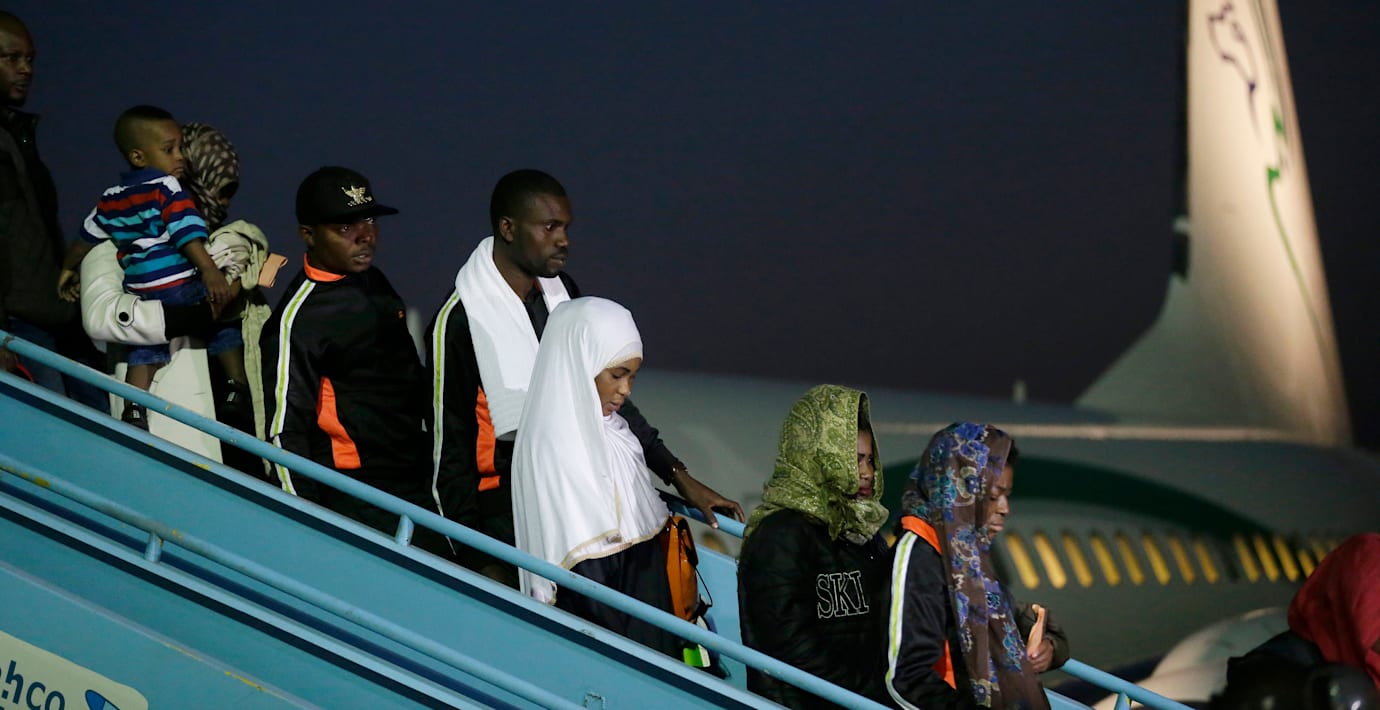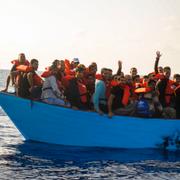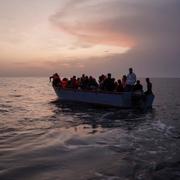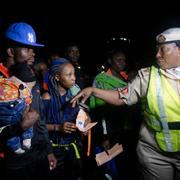
Berättar om slavhandeln: Slog, våldtog och sålde oss
EU samarbetar med Libyens kustbevakning för att minska antalet migranter som korsar Medelhavet för att ta sig till Europa. Samtidigt blir många migranter kvar i centrala Libyen, där de används som slavar, berättar flera drabbade som BBC pratat med.
Agen Akhere har registrerats av Internationella migrationsdomstolen (IOM) och lyckats ta sig hem efter två månader på en förvarsenhet i Gharyan. Han beskriver hur han och flera andra utnyttjades av fängelsevakter, fick svälta, slogs, våldtogs – och såldes som slavar.
– De kom till våra husvagnar (celler), de valde sex personer att göra deras smutsiga jobb som jordbruk och tegelläggning, säger Lucky Akhanene som återvände hem i samma grupp som Akhere.
bakgrund
Internationella migrationsdomstolen
Wikipedia (en)
The International Organization for Migration (IOM) is an intergovernmental organization that provides services and advice concerning migration to governments and migrants, including internally displaced persons, refugees, and migrant workers. As of September 2016, it became a related organization of the United Nations. It was initially established in 1951 as the Intergovernmental Committee for European Migration (ICEM) to help resettle people displaced by World War II. As of June 2016, the International Organization for Migration has 166 member states and eight observer states.
It is the principal intergovernmental organization in the field of migration. IOM's stated mission is to promote humane and orderly migration by providing services and advice to governments and migrants.
IOM works to help ensure the orderly and humane management of migration, to promote international cooperation on migration issues, to assist in the search for practical solutions to migration problems and to provide humanitarian assistance to migrants in need, be they refugees, displaced persons or other uprooted people.
The IOM Constitution gives explicit recognition to the link between migration and economic, social and cultural development, as well as to the right of freedom of movement of persons.
IOM works in the four broad areas of migration management: migration and development, facilitating migration, regulating migration, and addressing forced migration. Cross-cutting activities include the promotion of international migration law, policy debate and guidance, protection of migrants’ rights, migration health and the gender dimension of migration.
In addition, IOM has often organized elections for refugees out of their home country, as was the case in the 2004 Afghan elections and the 2005 Iraqi elections.
IOM works closely with governmental, intergovernmental and non-governmental partners.
Gharyan
Omni är politiskt obundna och oberoende. Vi strävar efter att ge fler perspektiv på nyheterna. Har du frågor eller synpunkter kring vår rapportering? Kontakta redaktionen



